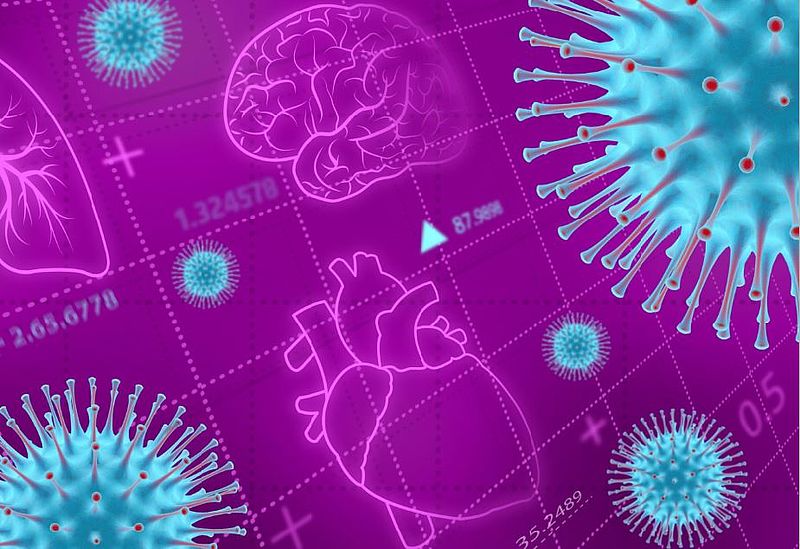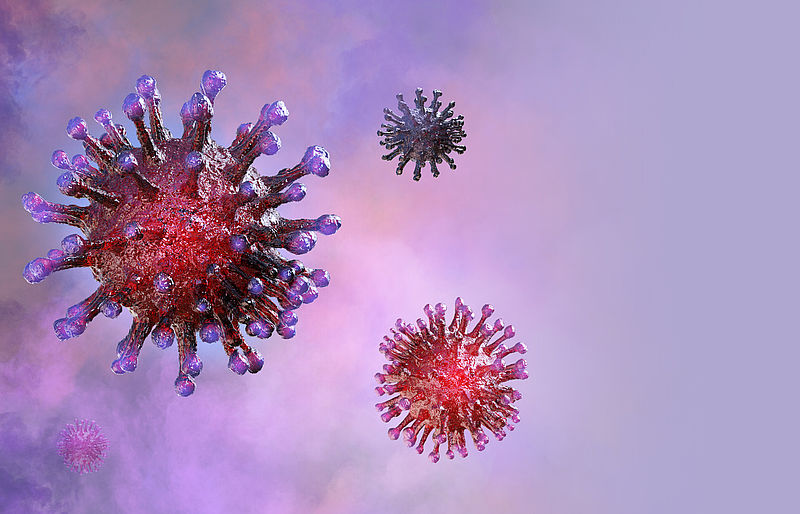COVID 19 has not only kept the public, but also the medical community in suspense for several months. There is increasing awareness that infection with the SARS-CoV-2 coronavirus can not only severely damage the lungs, but can also affect other organ systems such as the kidneys, nervous system and vascular system.
The discovery, for example, caused a sensation that about a third of the patients seriously ill with COVID-19 died of thrombosis and pulmonary embolism. When the pandemic broke out in China, it became known that cardiovascular damage can also occur in COVID-19, which is a major threat to patients.
Cardiologists at the DZHK sites Rhine-Main and Berlin have now delivered another important puzzle piece for understanding COVID-19. They could find the SARS-CoV-2 virus in the heart muscle of patients who were admitted to the hospital with suspected acute myocarditis. “The patients at the Department of Cardiology at University Medical Center Mainz were under 40 years of age, physically active, tested negative for Sars-CoV-2 in nasopharyngeal swab and had a severe flu-like infection about 4 weeks before admission to us," reports Prof. Philip Wenzel.
The viral RNA was detected in one of the leading special laboratories for the examination of heart muscle tissue in Berlin. “We knew from our colleagues Dr. Escher and Prof. Schultheiss in Berlin that they had detected the virus in the myocardial biopsies of some patients with severe courses of COVID-19, sporadically also with heart failure in the absence of COVID-19. The special thing about our patients is that the virus can obviously be found by myocardial biopsy in the heart muscle, even if the actual COVID-19 disease has already been overcome or had a rather harmless course. After a clinically uneventful latency period, the patients came to us with the clinical picture of suspected myocarditis. It is not yet known whether there is a causal connection between the development of cardiac inflammation and the presence of SARS-CoV-2 in the heart muscle (e.g. due to persisting proliferation in the tissue)”, Wenzel says.
The work of the two DZHK groups has now been published in the journals Cardiovascular Research and ESC Heart Failure, respectively “The long-term consequences of overcome corona disease are not yet known. Our results show that the cardiovascular implications of COVID-19 can be extremely important and that they have to be treated and followed-up carefully, ”says Professor Thomas Münzel. "Patients with heart problems should therefore always visit a Chest Pain Unit - help can be provided quickly, especially in corona times."
Publications:
Evidence of SARS-CoV-2 mRNA in endomyocardial biopsies of patients with clinically suspected myocarditis tested negative for COVID-19 in nasopharyngeal swab. Wenzel et. al., Cardiovascular Research (2020) 116, 1661–1663, doi:10.1093/cvr/cvaa160
Detection of viral SARS-CoV-2 genomes and histopathological changes in endomyocardial biopsies. Escher et. al., ESC Heart Failure (2020), DOI: 10.1002/ehf2.12805
Contact:
Prof. Philip Wenzel, Universitätsmedizin der Johannes Gutenberg-Universität Mainz, Zentrum für Kardiologie - Kardiologie I, Univ.-Prof. Dr. med. Philip Wenzel, wenzelp(at)uni-mainz.de


